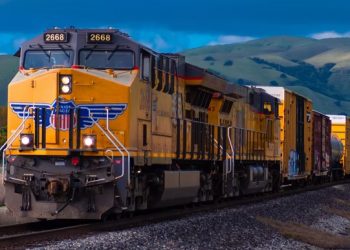Just ahead of a deadline to intervene Friday, President Joe Biden signed an order naming the members of an emergency board that would resolve disputes between freight rail carriers and unions representing roughly 115,000 employees, narrowly averting a rail strike that could have had significant impacts on the national economy.
Ira F. Jaffe was named by Biden to chair the presidential emergency board. With more than four decades of experience in labor and employment arbitration cases, Jaffe has chaired or served on five other emergency boards. He is also a U.S. panelist on the Rapid Response Labor Panel under the United States-Mexico-Canada trade agreement.
Also named to the board was Boston College Professor David Twomey. He has served on prior boards that resolved major disputes with airline and rail unions, and Barbara C. Deinhardt, an independent arbitrator with experience as chair of the New York State Employment Relations Board and New York State Workers’ Compensation Board.
Had Biden not created the board by Monday, the rail unions could have begun operational shutdowns or outright strikes, paralyzing rail trafficking of goods across the country, and having grave effects on the national economy.
The White House said the board, “will provide a structure for workers and management to resolve their disagreements. The Board will investigate the dispute and, within 30 days of its establishment, deliver a report recommending how the dispute should be resolved.”
So far, talks between the unions and the major freight railroads, including Union Pacific (UNP.N) and Berkshire Hathaway (BRKa.N)-owned BNSF have been going on for two years with no effect.
The order initiates a “cooling-off” period, to allow the sides to come back to negotiations fresh to reach a settlement.
The rail traffic is vital to the national economy, delivering everything from the feed necessary to keep livestock alive to mail-order packages, to fuel, to soybeans and grain that are necessary for the national food supply. Any disruption in the rail lines would severely impact supply chains, trigger increased inflation, or even shortages.

